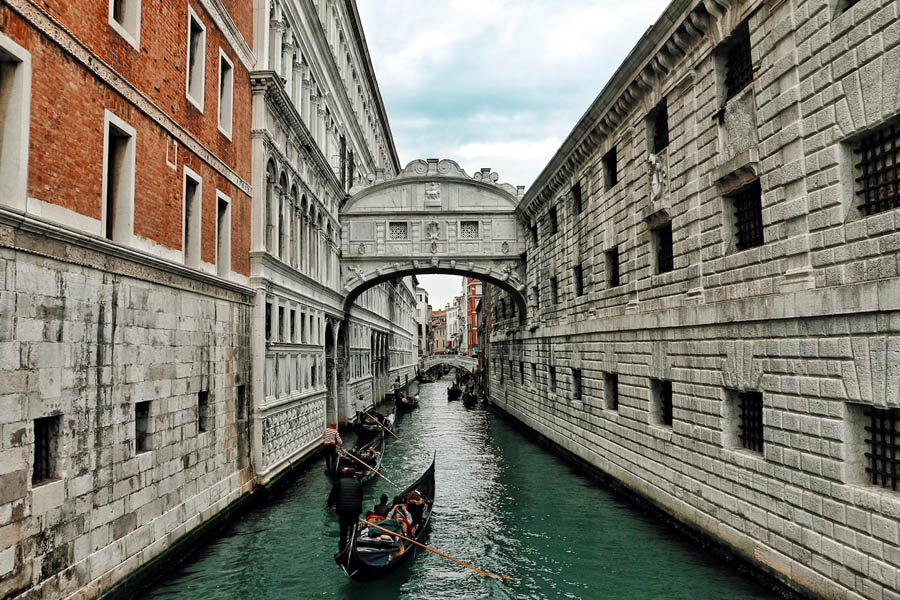
Venice-Italy: For the inhabitants of this unique lagoon city, the slow but steady erosion of their daily life is evident at every corner. What were once local hardware stores have now transformed into trattorias catering to tourists, souvenir shops have replaced fruit stands, and the last school in an outlying neighborhood has closed its doors. Venice has grappled with the impacts of mass tourism for decades. However, residents assert that the city has now reached a tipping point, accelerated by a surge in European and U.S. tourism over recent years, only briefly disrupted by the Covid-19 pandemic. In an unprecedented development, Venice's main islands currently offer more beds for tourists, including hotels and short-term rentals like Airbnb, than they do for residents, marking a significant shift in the city's demographic landscape. This revelation, reported by Ocio, a group advocating for affordable housing in Venice, has made headlines across Italy, heightening concerns that the city may soon be inhabited solely by tourists and a dwindling number of local residents. In comparison, Florence, with a population approximately seven times larger, has a similar number of tourist accommodations.
The inundation of tourists in Venice was once primarily a concern during summer and a few peak periods throughout the year. Today, it has become a year-round phenomenon. Simultaneously, the city's resident population is steadily dwindling, falling below 50,000 last year for the first time in over three centuries. This is a stark decline from 66,000 two decades ago and 175,000 in the early 1950s. Tourists can now be seen snapping photos near a nondescript pharmacy, where a digital display in the window reveals the city's dwindling population over recent decades. While intended to raise awareness about Venice's precarious situation, it has inadvertently become another Instagram-ready tourist attraction. Between the Rialto Bridge and St. Mark's Square, the heart of Venice, tourists stroll past shops selling souvenirs, sweets, Belgian waffles, French crepes, and slices of pizza. Knockoff Murano glass figurines serve as a reminder that this is still Venice. Even a store selling bathroom accessories, seemingly geared toward locals, largely caters to foreigners renovating vacation homes in the city. The proliferation of apartments rented through platforms like Airbnb has driven up rents beyond the means of many locals. As the resident population diminishes, so does the availability of essential services. Some medical specialists are challenging to find, necessitating residents to travel to the mainland for specific treatments. While large cruise ships have been banned from approaching Venice's central islands due to concerns about damage to the city's foundations, they still traverse the lagoon, sometimes carrying over 3,000 passengers, causing harm to the city and its natural environment, according to local university researchers. Large private yachts docking near St. Mark's Square also contribute to the damage, they claim, although the city council disputes this. Advocacy groups are urging Venice to follow New York City's lead by tightening regulations on short-term rentals. They also seek incentives for apartment owners to rent to residents, restrictions on the construction of new hotels, and the cessation of approvals for converting existing buildings into hotels.
This year is expected to surpass the previous record of 5.5 million tourists in 2019, before the pandemic disrupted global travel. Many European cities, from Barcelona to Dubrovnik, are grappling with the challenges of excessive tourism. Venice, however, has become emblematic of this issue, as it navigates the tension between its global appeal and the fragile fabric of a centuries-old city built across more than 100 islands. Recently, Venice's city council approved a €5 fee (approximately $5.33) for day-trippers entering the city's historic center on the busiest days, beginning next spring. Residents, workers, and students will be exempt from this fee, which can be paid online or via a mobile app. While there won't initially be turnstiles to enter the city, visitors must be prepared to show their ticket upon request by authorities. Offenders may face a penalty of approximately €100. Michele Zuin, Venice's councilman in charge of the budget, acknowledges that the city may incur losses in the program's first year, but subsequent funds will be used to reduce local taxes and maintain the city. Many locals perceive this fee as evidence that their city is evolving into a theme park, surrendering to the notion that Venice will soon cater exclusively to tourists. Urban planners argue that it will do little to alleviate the scale of tourism or mitigate its impact.